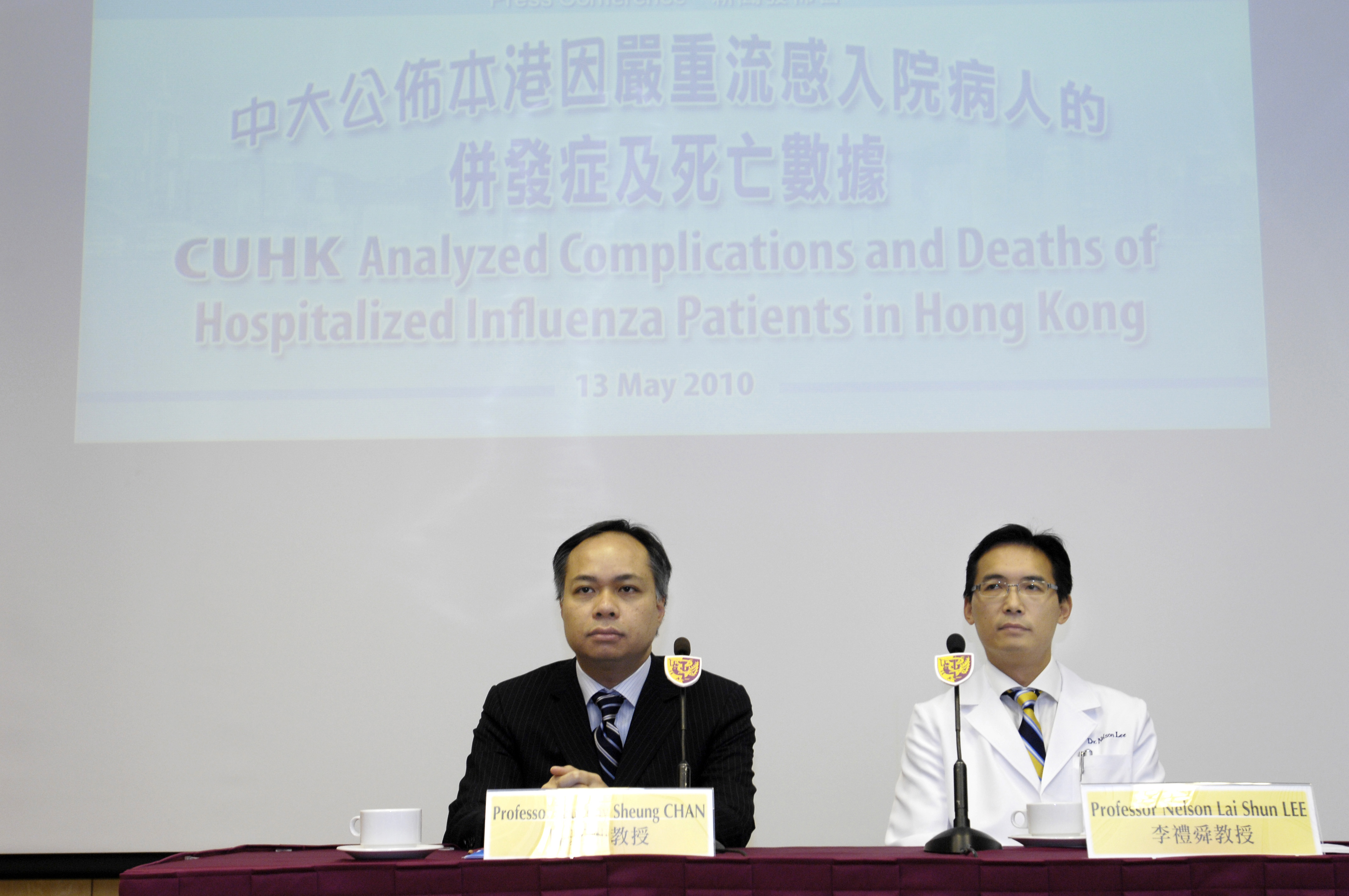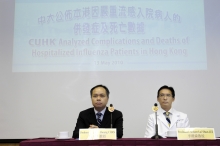CUHK
News Centre
CUHK Analyzes Complications and Deaths of Hospitalized Influenza Patients in HK To Improve Clinical Management of Patients with Severe Influenza
According to World Health Organization, seasonal influenza causes 3-5 million severe infections and 250-500 thousand deaths every year globally. In Hong Kong, it has been estimated that about 100 per 100,000 elderly persons die from influenza-related complications annually. However, there have been few clinical studies on severe influenza. The clinical management of these patients remains uncertain.
The Division of Infectious Diseases of the Department of Medicine and Therapeutics and the Department of Microbiology at The Chinese University of Hong Kong (CUHK) designed and conducted a clinical observational study to look at 754 cases of influenza in two acute hospitals in New Territories East Cluster during 2007-2008. All patients received rapid virological testing. It was found that 72% had Influenza A while 28% had Influenza B. The average age of the patients was 70 years old, and 60% of them had chronic medical illnesses.
The study discovered that 77% of the patients suffered from severe influenza-related complications, and the overall death rate was 5.2%. Among the high-risk individuals with chronic medical conditions, the death rate was as high as 12% if untreated. The median duration of hospitalization was 5 days.
The study also showed that appropriate antiviral treatment may reduce death rate by one-third, and speed up patient’s recovery. Treatment received within 48 hours from influenza onset produces the best outcomes, but treatment received between 48 and 96 hours may still be beneficial in some patients suffering from severe illness.
In addition, a case of mixed H3N2 and pandemic H1N1 infection was reported. It raised the concern of further genetic re-assortment of pandemic H1N1 virus. It is therefore important to properly isolate patients with influenza to prevent virus-mixing. It is also believed that multivalent vaccines to cover different influenza virus strains should be a useful strategy.
CUHK findings may help to improve influenza patient management in future. High-risk individuals with ‘influenza-like illness’ should receive prompt laboratory testing, followed by appropriate antiviral treatment to speed up recovery and to reduce death. Vaccination for the high-risk group is also encouraged.



